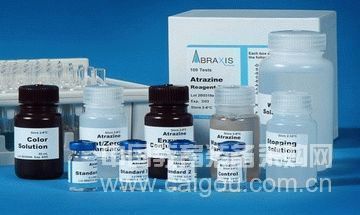Pharmaceutical industry applications Medicines containing papain can fight cancer, tumors, lymphocytic leukemia, protozoa and parasites, tuberculosis bacteria, etc., and can reduce inflammation, choleretic, analgesic, and digestion. Treat gynecological diseases, glaucoma, bone hyperplasia, gun knife wound healing, blood type identification, insect bites, etc. Food industry applications Enzymatic reactions can be used to hydrolyze large molecules of food into small molecules or amino acids. It is used to hydrolyze animal and vegetable proteins, make tender meat powder, hydrolyze sheep placenta, hydrolyze soybeans, biscuit softener, noodle stabilizer, beer beverage clarifier, high-grade oral liquid, health food, soy sauce brewing and wine fermentation agent. The use of effectively transformed protein greatly improves the nutritional value of food and reduces costs. Conducive to digestion and absorption of the human body. Beauty cosmetic application Papain is added to cosmetics containing protein and oil, which has unique whitening and skin rejuvenation, beauty health care, freckle removal and dirt removal, blood circulation promotion, skin improvement, etc., and improve product quality. Can be made into slimming tea, beauty skin care products, etc. Daily chemical industry application Used in soap, soap, detergent, washing powder, Hand Sanitizer, etc. It has strong detergency, disinfection and disinfection, and is safe and secure. Feed industry applications It is used for feed additives, developing protein sources, facilitating absorption, improving feed utilization, saving costs, helping livestock digestion and accelerating growth. Such as added in feed for pigs, cattle, sheep, chickens, ducks, geese, fish, shrimp and so on. It can also be used as an additive for advanced compound fertilizers for vegetables and fruits. Leather industry applications Using papain to make depilatory agent and tanned leather, it has the effect of delicate pores and bright skin texture. Application in textile industry: It can be used to treat wool, pupa degumming, and silk refining. It can achieve soft, comfortable, anti-shrink and tensile strength effects. Cell culture Papain is used to separate cells in the first step of preparing cell culture. After treating the small tissue block with an enzyme for 10 minutes, the extracellular matrix of the connected cells can be interrupted; then the protease inhibitor is used to stop the reaction to prevent the papain from further lysing the cell itself; finally the Pasteur pipette is used to break up the tissue block into Single cell suspension. Immunology In immunology, papain can be used to cleave Fc fragments (crystallizable) and Fab fragments (antigen binding) of immunoglobulins (ie antibodies). Origin In China, papaya cultivation is mainly distributed in Hengxian and Yongning counties in Guangxi, and is a specialty fruit in Guangxi. Therefore, papain manufacturers are mainly concentrated in Nanning, Guangxi. Papain production and research have been for nearly 20 years. Catalytic mechanism The mechanism of papain cleavage of peptide bonds includes: deprotonation of Cys-25 under the action of His-159, and Asn-158 can help the placement of the imidazole ring of His-159, so that deprotonation can occur; then Cys- 25 Nucleophilic attack the carbonyl carbon on the peptide main chain, and covalently link with it to form an acyl-enzyme intermediate; then the enzyme interacts with a water molecule to deacylate and release the carbonyl end of the peptide chain. produce Production method 1: Dried papaya emulsion diatomaceous earth; sand; 0.04mol·L-1 cysteine ​​→ extraction, filtering crude extract NaOH; Ph9 → Ph9 → insoluble material supernatant precipitation, centrifugal crude extract (NH4) 2SO {4 → precipitation; centrifugal precipitation 0.02mol·L-1 cysteine; Ph7 → dissolved solution NaCl (solid) → precipitation; Centrifugal precipitation 0.02mol·L-1 cysteine; Ph6.5 → Solution solution freezing, centrifugation, recrystallization solution 40 → freezing; centrifugal crystallization ^ H2O; NaCl → recrystallization finished product Production method 2: The latex is extracted from the unripe papaya fruit, and the product is prepared by settling, solidifying and drying it. Production method three is made from the unripe fruits of papaya (Caric papaya) by extracting emulsion, coagulation, sedimentation, and drying to make crude products. In general industry, the application of crude products is dominant. Ordinary Protective Mask,Disposable Protective Mas,Disposable Medical Surgical Mask,Disposable Medical Face Mask ShenZhen Bri-Cloud Industrial Co.,Ltd , https://www.sobeautyhealth.com